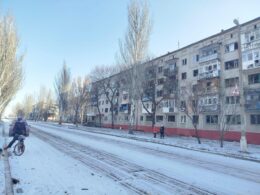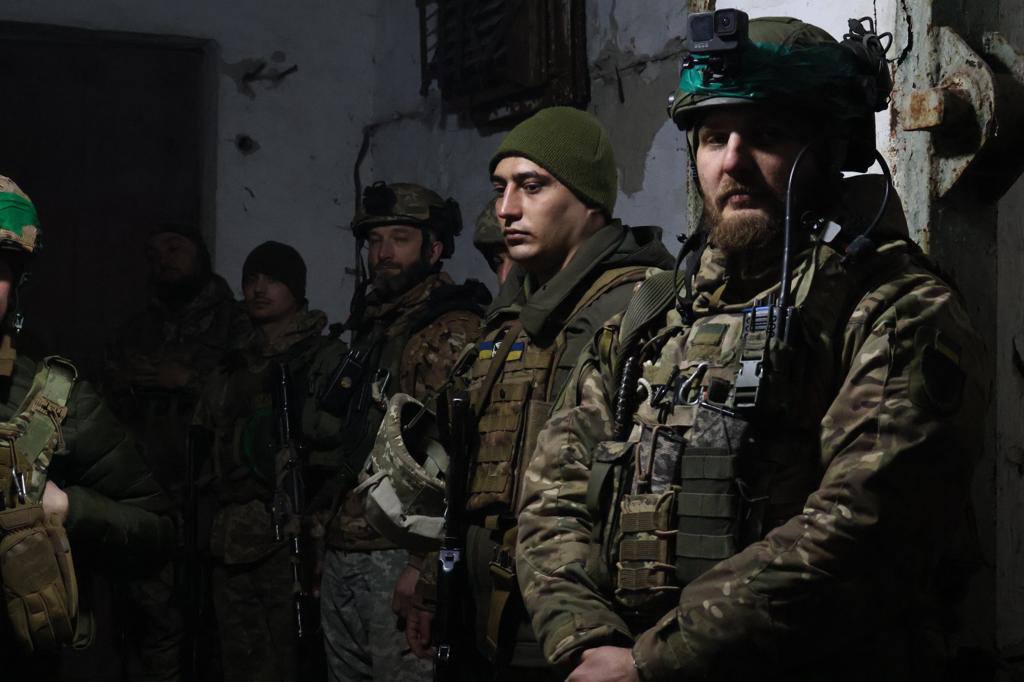The US-based think tank Institute for the Study of War (ISW) supports the claim by the Ukrainian military that the Russian spring offensive in Ukraine's east is likely nearing its end as Russian forces are struggling to make significant gains.
"If 300,000 [mobilized] Russian soldiers have been unable to give Russia a decisive offensive edge in Ukraine, it is highly unlikely that the commitment of additional forces in future mobilization waves will produce a dramatically different outcome this year," ISW noted.
Statements made by Ukrainian military officials on the pace and prospects of current Russian offensive operations may suggest that the overall Russian spring offensive may be nearing culmination. Ukrainian Eastern Group of Forces Spokesperson Colonel Serhii Cherevatyi stated
on March 19 that Russia was unable to gather sufficient forces for the anticipated major offensive in Donbas and noted that current Russian offensive actions cannot be called a “major strategic operation.”
Cherevaty emphasized that Russian forces cannot even complete the tactical capture of Bakhmut, which supports ISW’s assessment that the Wagner Group offensive near Bakhmut is likely nearing its culmination.
Russian forces are also notably struggling to secure operationally significant gains elsewhere along the frontline, particularly in the Avdiivka-Donetsk City and Vuhledar areas. Ukrainian Tavriisk Defense Forces spokesperson Colonel Oleksii Dmytrashkivskyi noted on March 19 that Russian forces have been desperately attacking Avdiivka to restart offensive operations on Vuhledar, likely suggesting that continued Russian attacks in the Avdiivka area are meant partially to pull Ukrainian reserves away from western Donetsk Oblast to the Avdiivka-Donetsk City area. Dmytrashkivskyi stated that this renewed offensive focus on Avdiivka has recently led to major Russian losses around Avdiivka amounting to the equivalent of one company, on which ISW has previously reported
.
Ukrainian military officials additionally continue to indicate that massive Russian losses in the Vuhledar area are severely degrading Russian offensive capacity in Donetsk Oblast. Dmytrashkivskyi stated that Russian forces have reinforced elements of the 155th Naval Infantry Brigade (currently heavily committed in the Vuhledar area) with reserve forces of the 98th Guards Airborne Division.
The 155th Naval Infantry Brigade suffered catastrophic manpower and equipment losses during continued failed attacks on Vuhledar in November 2022 and February 2023, and Russian military leadership is likely heavily relying on reserve elements from the 98th Airborne Division to offset and compensate for the 155th Naval Infantry Brigade’s losses.
The 98th Airborne Division is at least partially committed in the Kreminna area in Luhansk Oblast, and the commitment of some of its constituent elements to the Vuhledar area is likely indicative of a level of desperation on the part of the Russian military command trying to reconstitute battered units and restart offensive operations in western Donetsk Oblast.
The Ukrainian General Staff similarly noted
that the Russian military leadership is in a hurry to send reinforcements to Vuhledar and has been creating a ”Shtorm” detachment within the 37th Separate Motorized Rifle Brigade (36th Combined Arms Army, Eastern Military District), which will presumably deploy to the Vuhledar area on March 24.
The ad hoc reconstitution of existing units for deployment to Vuhledar, as well as the apparent creation of sub-brigade echelon special formations, suggests that Russian combat capabilities in western Donetsk Oblast are greatly degraded.
The overall Russian spring offensive is thus likely approaching culmination. Ongoing Russian offensives along the Svatove-Kreminna line, around Bakhmut, and along the Avdiivka-Donetsk City and Vuhledar frontlines have failed to make more than incremental tactical gains in the first few months of 2023. Russia has committed the approximately 300,000 mobilized soldiers, called up by partial mobilization in September 2022 for the purpose of pursuing exactly such a spring offensive, to these various offensive efforts. If 300,000 Russian soldiers have been unable to give Russia a decisive offensive edge in Ukraine it is highly unlikely that the commitment of additional forces in future mobilization waves will produce a dramatically different outcome this year. Ukraine is, therefore well positioned to regain the initiative and launch counteroffensives in critical sectors of the current frontline.
Read also:
- Russia increasingly threatens Ukrainian army’s supply lines west of Donetsk’s Avdiivka – British Intelligence
- Ukraine reportedly conducted a missile strike almost 100 km deep in Russia’s defense, destroying a Russian base
- Russian troops are pressing in an effort to encircle small Ukrainian city Avdiivka
- Fighting continues on the three sides of Bakhmut — General Syrskyi




